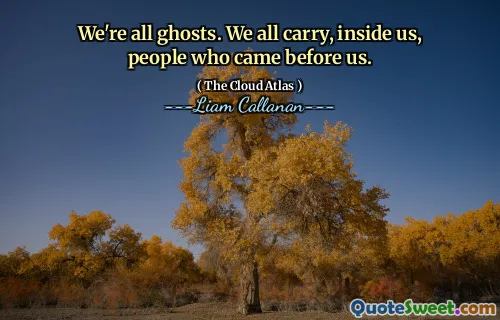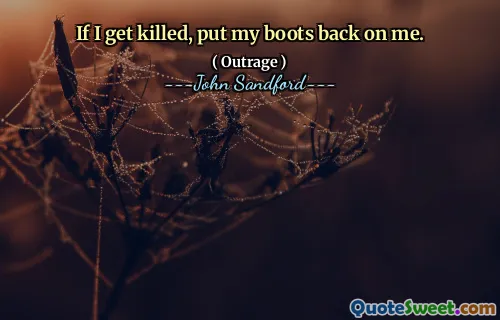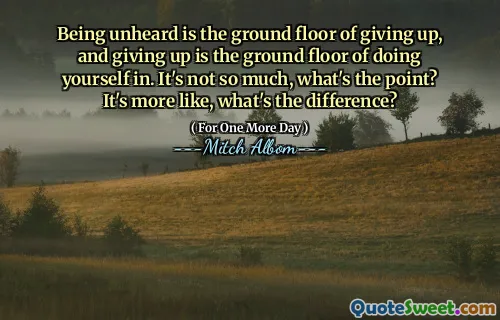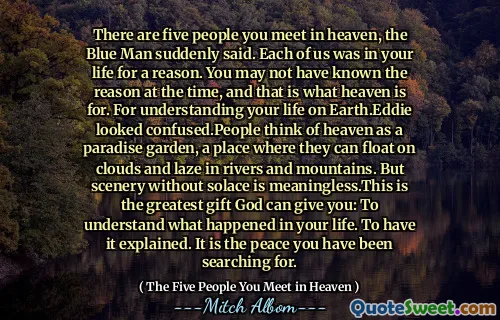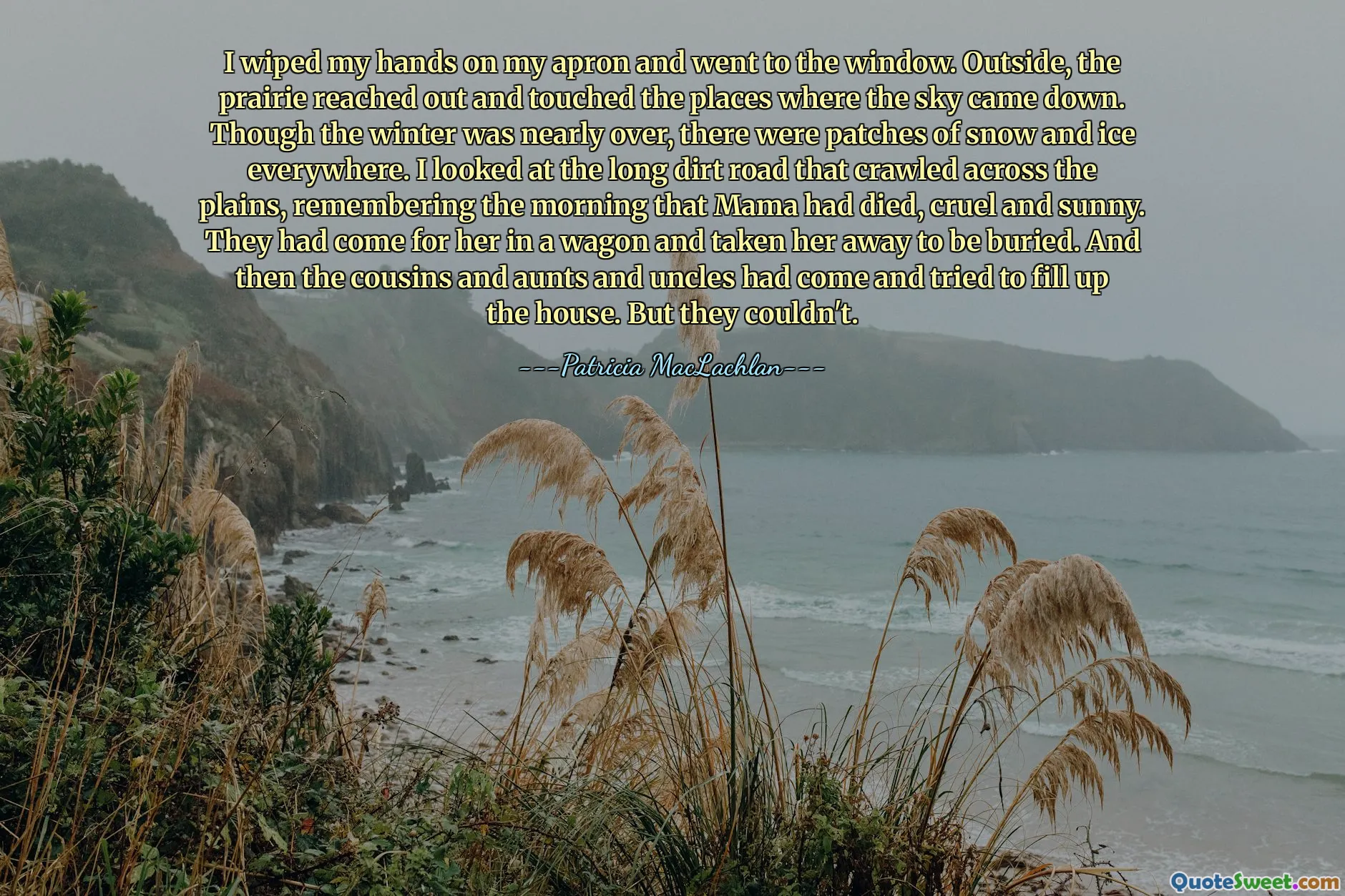
I wiped my hands on my apron and went to the window. Outside, the prairie reached out and touched the places where the sky came down. Though the winter was nearly over, there were patches of snow and ice everywhere. I looked at the long dirt road that crawled across the plains, remembering the morning that Mama had died, cruel and sunny. They had come for her in a wagon and taken her away to be buried. And then the cousins and aunts and uncles had come and tried to fill up the house. But they couldn't.
This passage beautifully captures a poignant moment of reflection and loss against the still lingering chill of winter's end, symbolizing the bittersweet transition from hardship to hope. The imagery of the vast prairie meeting the sky evokes a sense of endlessness and freedom, yet it starkly contrasts with the intimate grief of the narrator. The act of wiping hands on the apron suggests a return from work or daily chores to a moment of quiet contemplation, highlighting how life continuously moves forward even in the wake of sorrow. The description of winter—"cruel and sunny"—poignantly expresses how even beautiful days can carry an underlying harshness, much like grief which can be both a tender and painful experience.
The memory of the mother's death grounds the quote in a palpable reality of loss. The detail about the wagon and the extended family coming to fill the house adds layers of communal mourning and family dynamics. Yet the concluding thought that "they couldn't" fill the house conveys a deep sense of irreplaceable absence and loneliness. This quote eloquently explores themes of memory, family, loss, and the passage of time. It speaks to those moments when the external world—here symbolized by the prairie and the lingering snow—mirrors the internal landscape of remembrance and sorrow. The writing invites readers to reflect on how we cope with loss within the rhythm of day-to-day life and how the physical environment can hold and echo our memories.
Overall, this passage resonates as a tender meditation on grief and resilience, captured through vivid sensory details and evocative emotional depth.






